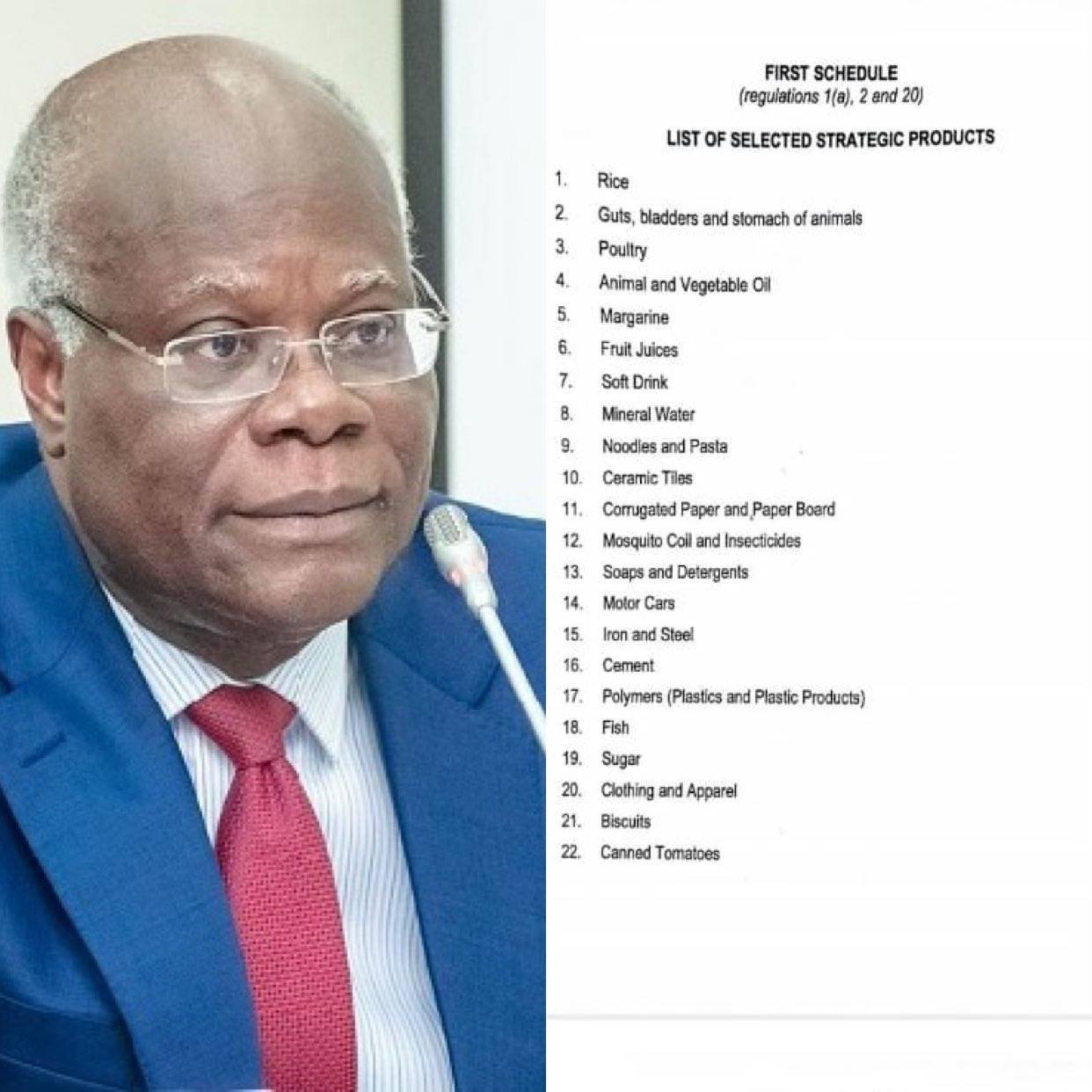Hot!
KT Hammond justifies import restrictions bill, says it’ll boost local production

The Minister of Trade and Industry, KT Hammond, has clarified that the government’s proposed import restrictions bill on 22 commodities is not intended to create food shortages but rather to encourage local production and consumption.
In a press briefing, KT Hammond outlined the government’s plan to impose import restrictions on a range of products, including poultry, animal and vegetable oils, margarine, fruit drinks, soft drinks, mineral water, noodles and pasta, and ceramic tiles.
He emphasized that this measure is not a ban, but rather a strategic initiative to promote domestic production and reduce reliance on imports.
KT Hammond acknowledged concerns from stakeholders regarding potential food shortages, but he assured the public that the proposed restrictions are designed to encourage local producers to step up and meet the country’s needs.
Giving further details on the Legislative Instrument on Eyewitness News, he further explained that the import restrictions may not be implemented until 2024, providing ample time for businesses and consumers to adjust.
“You know, by its nature, when you put an L.I. before Parliament, it takes 21 days to mature. And so by 21 days, all that traders would want to import, they can import. Because by the time the L.I. kicks in, they would have imported everything. So I am not anxious that it is going to lead to a shortage of anything going to Christmas. Hopefully, it will kick in 2024. But even that, as I said, it is not a ban.”
The Trade Minister encouraged Ghanaians to embrace this initiative and support local farmers by purchasing domestically produced goods.
He also mentioned that private businesses seeking to import restricted products would need to apply for permits.
“So we are not banning, but it will require some sort of assurance that there is the need for these particular items to be imported in the country, but definitely nothing like banning, but we will be monitoring.”
He said, “The Agric ministry is on board and the committee would want to ascertain how much quantity is it that the country can import. What is the gap between production and consumption and depending on that you would import.”
The government’s proposed import restrictions aim to strike a balance between protecting domestic industries and ensuring adequate supply of essential goods. By encouraging local production and consumption, the government hopes to strengthen the economy and reduce reliance on external resources.
Source: Citinewsroom.com